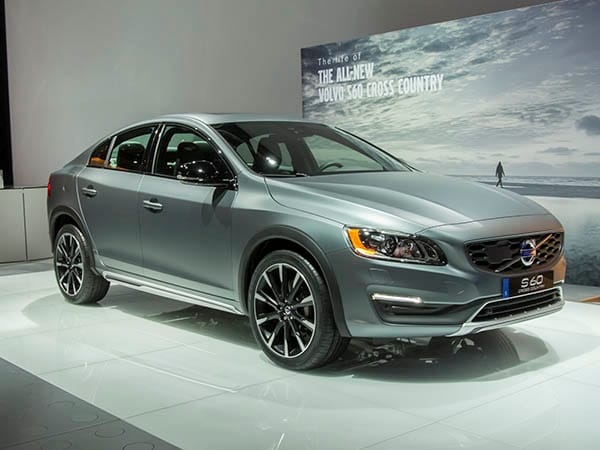Volvo Cars of North America, on track for its first annual U.S. sales increase in three years, expects to top 100,000 vehicles as soon as 2017, an achievement that would help more dealers become profitable and legitimize the brand's comeback efforts, CEO Lex Kerssemakers said.
Kerssemakers, who is nearing the end of his first year as North American CEO, said Volvo, which sold 56,366 vehicles in 2014, is targeting about 70,000 this year and 87,000 in 2016. He said it would then take "one, one and a half -- maximum two years" to reach 100,000, a threshold Volvo last surpassed in 2007. Through October this year, Volvo sales totaled 53,803, a 13 percent gain.
"We need to get back to 100,000 units as soon as possible," Kerssemakers said in an interview at the Los Angeles auto show. "With all the products coming, if we don't make it now, I tell my guys, we'll never make it."
Volvo sales rose 87 percent in October, the result of an 861 percent jump for the redesigned XC90 crossover, which last week won the SUV of the Year award from U.S. magazine Motor Trend.
Kerssemakers said the XC90 is in "extremely high demand" and selling with a very rich mix.
"Retailers are just grabbing the cars out of our hands," he said. "Our retailers needed a car like this. After being out of sight and out of mind [for] many customers, they needed a success story again, and now we have a success story."
Volvo dealers also are eagerly awaiting the S90, a flagship sedan to replace the aging S80. Volvo didn't unveil the S90 in Los Angeles but will introduce it "very soon," Kerssemakers said. The next major auto show is in Detroit in January.
Instead of a new vehicle, Volvo showed journalists last week a conceptual design for the interior of an autonomous vehicle. The design, which it called Concept 26, features three seat modes to accommodate various levels of human-controlled and autonomous driving, including a "relax" mode for lying back and letting the car do all the work.
The concept shows how much Volvo is focused on autonomous-driving technology, which it sees as an important tool to help achieve its goal of eliminating deaths and serious injuries in its vehicles by 2020.
Though it's considerably smaller than some companies working on similar technology -- namely, Google -- Volvo has vast experience making safe vehicles, Kerssemakers said.
"We know how a car behaves, and we have a long history with respect to safety," he said. "We know how to develop cars."
Nick Bunkley

No comments:
Post a Comment
Please leave a message, I will verify them swiftly, Sorry to have to do this now as some twat keeps spamming my message system, unfortunately they are ignorant and spoil it for everyone else,
Note: only a member of this blog may post a comment.